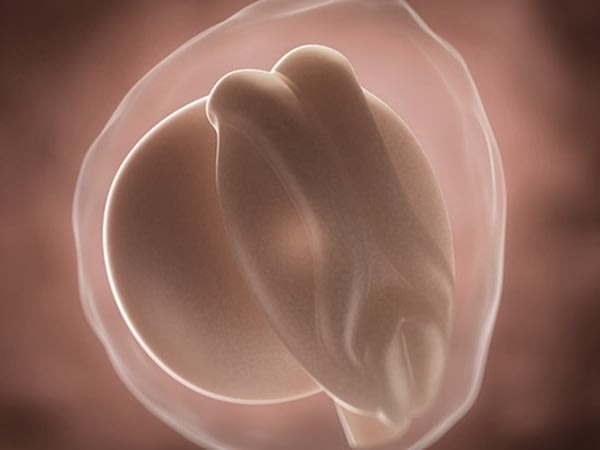Blog
Pregnancy: are you gaining the right amount of weight?
Friday 1st December 2017
A recent study has found that not gaining a healthy amount of weight during pregnancy puts mothers and babies at an increased probability of various health risks. Research concluded that 75% of women do not gain a healthy amount of weight during pregnancy. The study, led by Monsah University researchers in…
Is it normal to feel anxious about being pregnant?
Friday 1st December 2017
Feeling anxious during pregnancy Pregnancy can be overwhelming to the point that after wanting a baby for so long, getting a positive…
Stretch marks - Can they be avoided?
Friday 1st December 2017
Are stretch marks inevitable in pregnancy or can you save your skin? If you don’t know much about pregnancy before you are expecting a baby, the one thing you are bound to have heard of is stretch marks! But is there anything you can do to lessen their impact on your skin or avoid them altogether? Read on… What are stretch marks? Stretch marks occur when the skin has been stretched beyond the tissue’s ability to bounce back into shape. The elastin and collagen naturally present in your skin just can’t cope with rapid growth. This is why stretch marks are associated with your growing bump or increased breast…
Ovulation
Sunday 19th November 2017
WHEN IS THE BEST TIME TO CONCEIVE? Understanding your menstrual cycle and the date that you are likely to be ovulating can increase your chances of conceiving. Ovulation usually happens around two weeks before your period starts1, and you are most likely to conceive if you have plenty of sex in the days prior to this. Common signs of ovulation As ovulation approaches you may notice some physical changes. These include: >An increase in vaginal mucus, along with a change in consistency which may make it look like egg white >A slightly raised temperature >Abdominal pain >Tender breasts >Spotting >Feeling bloated >Charting your temperature Prior to ovulation your body temperature drops a little, then rises by around 0.2°C after ovulation. Recording your basal body temperature…
Home Pregnancy Tests
Sunday 19th November 2017
HOME PREGNANCY TESTS: WHAT YOU NEED TO KNOW While headaches, nausea, and a missed period can be symptoms of early pregnancy, the only way to confirm it is to take a home pregnancy test. Find out when and how to carry out the test for the most accurate result. Am I pregnant? Around six days after fertilisation, the cells that will become the placenta start producing a hormone called hCG (human chorionic gonadotrophin)1. After two weeks – probably around the time your period is due – the hCG levels should be high enough for a pregnancy test…
How To Recognise Signs Of Labour
Wednesday 16th August 2017
You've been anticipating childbirth for the last nine months, so of course you’re anxious to be able to tell when the big moment is arriving. How will you know when it’s time to grab your hospital bag and get to the delivery room? Thankfully, your body will give you some solid clues. Read on to learn about the common signs of labor. When Will I Go into Labour? You have your baby’s due date—but a due date is just an estimate, and there’s really no telling exactly when baby will arrive. If you go into labor before 37 weeks of…
10 Ways To Get Better Sleep
Wednesday 16th August 2017
You’re so tired, and all you want is a restful night of sleep. So what's stopping you? Skip the late-night snacks We know baby’s hungry, but seriously, don’t consume…
Pregnancy trends to look out for this year
Wednesday 16th August 2017
Exercising until the end More women are not slowing down when it comes to exercising while they are pregnant. Tone up for a fit and healthy pregnancy with these 5 exercises. Midwives are more common Pregnancy trends show that more women opt for a midwife to deliver their baby, as they are looking for personalised care with less intervention. Hospitals are going wireless More hospitals are now using wireless foetal telemetry (to monitor the foetus) so that the mother-to-be can be mobile before giving birth. Pregnant women are stylish The fashion industry has taken a keen interest in maternity wear, and this is why we are seeing more stylish pregnant women. Post-baby spa treatments at hospitals There is an increase…
Pain Relief During Labour
Thursday 13th July 2017
Giving birth is a unique experience and it’s impossible to predict how you will feel physically. Some level of discomfort is to be expected but if things go beyond your expectations, it’s reassuring to know pain relief is available. Understanding different methods of pain relief and when they might be administered should make your labour more bearable. TENS machine Prevents pain…
Birthing Positions
Monday 17th April 2017
It’s natural to feel nervous about giving birth. Understanding your options and the benefits of different birth positions can help you feel more prepared. It’s also important to know what to expect if you need an assisted delivery or a caesarean, in case things don’t go to plan. Being in a good position During labour, there are certain positions that can make…
1-4 Weeks Pregnant
Sunday 16th April 2017
Although you may not even know you’re pregnant, by week 4 your body is already going through some significant changes. Learn when your baby’s genetic make-up becomes set and how your placenta will soon begin to form to support them, along with nutrition tips for weeks 1–4 of pregnancy. The start of your baby’s journey Fertilisation takes place around 14 days after the start of your last period. At that point, the fertilised egg that will eventually become your baby is technically called a zygote. During the 90 hours after fertilisation, the cells divide and subdivide into a pinhead-sized…
Deep Vein Thrombosis (DVT) In Pregnancy
Sunday 12th March 2017
Deep vein thrombosis (DVT) is a serious condition where a blood clot develops, often in the deep veins of the legs but occasionally in the pelvis. It can be fatal if the clot dislodges and travels to the lungs. Having a DVT is not common in pregnancy, but pregnant women are more likely to develop thrombosis than non-pregnant women of the same age. A clot can form at any stage of pregnancy and up to six weeks after the birth. Other factors that put you at risk of thrombosis include: >having had thrombosis (a clot)…

















